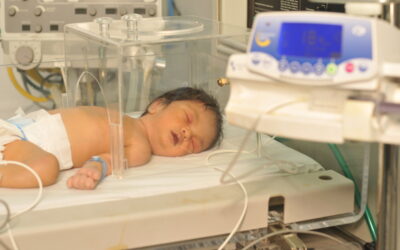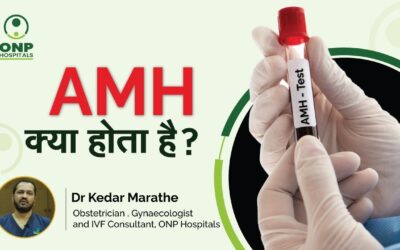Introduction Welcome to ONP Hospital, where the future of neonatal care unfolds within our state-of-the-artNeonatal Intensive Care Unit (NICU). Our commitment to delivering the highest standard of carefor our tiniest patients is evident in the cutting-edge technology,...

Overview
MTP, which is an abbreviation for Medical Termination of Pregnancy, is indeed a process for ending a pregnancy with the use of medications or a surgical procedure.. In the early stages of pregnancy that is 7-9 weeks, it is possible to abort the pregnancy with medication; thereafter, a surgical procedure is required to complete the termination. It is lawful in India to terminate a pregnancy using medical means if the pregnancy has not progressed beyond 20 weeks in length. According to the law, only the agreement of a significant pregnant woman is required in order to terminate the child; no third person’s consent is required.
Everything You Need To Know About Medical Termination
Who needs MPT?
When it comes to medical abortions, the grounds for doing so are often private. In order to accomplish an abortion or to terminate an undesired pregnancy, you might choose for a medical abortion. If you have a condition that makes prolonging a pregnancy life-threatening, you may be able to obtain an abortion by medical intervention.
How to Prepare?
Consult your Obstetricians and gynecologist’s doctor if you’re contemplating a medical termination. Your doctor may:
- Reassess your health records and overall
- Physically verify your pregnancy
- Do ultrasonography to check the child is not outside the uterus or a tumor in the uterus,
- Test your urine and blood
- Describe the procedure’s effects, dangers, and consequences
Medical termination is a critical choice. Talk to your spouse, parents, or friends. Consult a doctor, religious advisor, or counselor to receive answers, examine options, and plan for the future.
Remember that no physician must conduct an abortion procedure which in certain places there seem to be legal criteria and waiting periods. Abortion after a loss has no extra-legal restrictions or waiting periods.
Different Procedure
Medications used in medical abortion include:
- Oral mifepristone and misoprostol (Cytotec) – This is the most frequent medical termination. These drugs are normally given before seven weeks of your previous menstruation. Mifepristone (mif-uh-PRIS-tone) inhibits progesterone, leading uterine lining to shrink and inhibiting embryo implant and growth. A separate medicine, misoprostol (my-so-PROS-tol), induces uterine contractions and expels the embryo vaginally.
You’ll probably take mifepristone at a physician’s surgery or clinic. Afterward, at home, you’ll likely take misoprostol. You will have mild bleeding after that. You’ll need to return to your physician 7 days later to confirm the complete abortion. The FDA has authorized this protocol (FDA).
- Oral mifepristone with misoprostol – For this form of medical termination, a gradually disintegrating misoprostol pill is put in your vaginal route, in your mouth behind your teeth as well as in buccal channel, and under your lips or sublingual route. These methods have fewer negative consequences but may be more successful. These drugs must be used within 9 weeks after your previous menstruation.
- Vaginal misoprostol – Methotrexate is seldom used for undesired births, however, it is often used for extrauterine pregnancies (ectopic pregnancies). This form of medical termination should be done after 7 weeks of your previous menstruation, and methotrexate may take up to 4 weeks to accomplish. The misoprostol is administered at home after the methotrexate injection or vaginally. Misoprostol vaginal When administered before 9 weeks of pregnancy, vaginal misoprostol alone may be helpful. However, it is less successful than other medical termination methods.
After the Procedure
Following a medical termination, you may experience:
- Severe bleeding
- Back or stomach ache
- Long-lasting fever
- Yucky watery tearing
After a medical termination, you’ll see your physician as quickly as possible to get an update on your recovery, uterine thickness, menstruation, and inflammation. During 2 weeks following the abortion, avoid vaginal intercourse and tampon usage to prevent diseases. That depends on whether you would feel expectant, saw the evacuation of the lining of the womb or embryo, as well as how much hemorrhage you experienced and are still having.
You may require ultrasonography and maybe a surgical termination if the doctor fears a partial abortion or a recurrent pregnancy. You may feel relieved, sad, or guilty after a medical termination. This is normal. Speak to a counselor about them.
Conclusion
Moreover, another child is conceivable as quickly as two weeks following a medical termination, and fertilization may occur as early as 2 weeks just after the procedure. Before having an abortion, speak with your physician about how you may begin using contraceptives as quickly as the operation is completed.
Sub Services
What Patient has to say about us
People heavily rely on reviews from other patients when choosing a healthcare provider
Our Patients Many many happy returns of the day......... The best doctor in the world My mother was suffering from severe pain in both knees and spine. Dr. Aashish arbat sir has operated today after 15days she is doing every thing thank you Dr aashish arbat sir and team Especially the major support was from Dr Ram sir from admission to dischatge and follow ups and taken care very nicely thanku Dr. Ram sir Our Patients After enduring knee pain for the past decade, my mother sought advice from various doctors in Nagpur, Nashik, and Pune. They all recommended knee replacement surgery, but it was only when we discovered Dr. Aashish Arbat and the option of robotics surgery that we made the decision to proceed. The surgery took place on June 23, 2023, and it turned out to be an incredible experience. To our astonishment, on the morning of June 24, my mother was able to stand on her own legs and even take a few steps. This remarkable progress was made possible due to the advanced assistance of robotics arm and Artificial Intelligence. Dr. Aashish Arbat is an exceptional and highly experienced surgeon, and we are immensely grateful for his expertise. We also extend our appreciation to his colleagues, Dr. Sharma and Dr. Ram, for their excellent skills and compassionate nature. Our heartfelt thanks go out to the entire team for enabling my mother to live a pain-free life Our Patients My mother got her both robotic knee replacement from sir on Oct 2021. The team and sir have made the complete process seamless. Especially my mother was very comfortable post her surgery. Thank you Dr Arbat and team. Our Patients Our Patients Our Patients Hello. My wife has severe arthritis in her body knees since 2017. We communicated many doctors but she was not happy. We visited Dr arbat for same issue and he came up with robotic knee replacement solution which suited her accurately and she is walking 5-6km daily without hesitation and living comfortably. Thanks Dr. Aashish Arbat and his new technology.Chhaya Kate
pravin kharat
T Srivalli
Mohan Satavekar
VIVEK PANDEY
Subhash Bobade
Blogs
Transformative Care: Navigating the State-of-the-Art NICU Facility at ONP Hospital
Introduction Welcome to ONP Hospital, where the future of neonatal care unfolds within our state-of-the-artNeonatal Intensive Care Unit (NICU). Our commitment to delivering the...
Plant-Powered Health: Exploring the Benefits of a Vegetarian Diet
Introduction The debate between vegetarian and non-vegetarian diets has been ongoing for years, with both sides presenting their arguments. However, a growing body of scientific...
Battling Oral Cancer and Tobacco: Understanding Treatments, Diagnosis & Prevention
Introduction Oral cancer, a type of head and neck cancer, is a serious and potentially life-threatening condition that affects various parts of the mouth, including the lips,...
Videos
Dr. Amita Phadnis’s Full Speech on Survival & Health Rights at UNICEF India.
Dr. Amita Phadnis ,M.D., Gave a Motivating Speech
Breast cancer is cancer that forms in breast cells. Women are mostly diagnosed with this cancer. Although it can be seen in both men and women
What is AMH
The granulosa cells in your ovarian follicles create the anti-Mullerian hormone, often known as AMH. According to the American College of Obstetricians and Gynecologists (ACOG), the generation of AMH is a reflection of your ovarian reserve.
FAQ’s
Pregnancy and Migraine Headaches: What Women Need to Know
When you are pregnant or breastfeeding, then you should be aware that migraine headaches are a normal part of the journey. Pregnant women might feel headaches owing to...
What Is the Problem of Orthopedics in Children?
While orthopaedic problems are commonly seen in and associated with the elderly, it’s important to be alert regarding the fact that they can afflict young people and children as well.
All You Need to Know About Reproduction
Most science students have to study about reproduction in their high school syllabus, and some learn from their parents, who may discuss it even earlier. It’s a very good thing to know about our own bodies…



 Home
Home Pregnancy
Pregnancy






